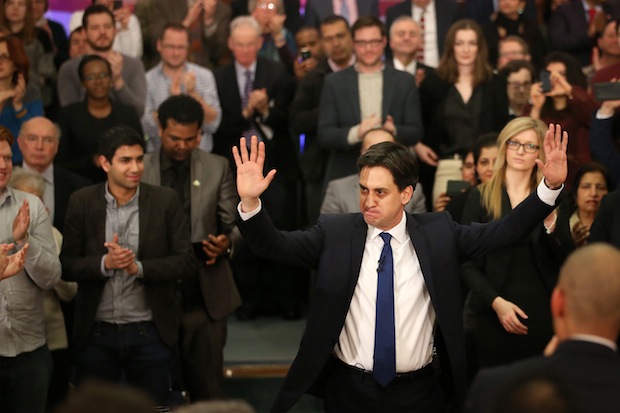David Axelrod has parachuted into London to give Ed Miliband a ‘makeover’. Miliband needs all the foundation and blusher he can get; but a trip to the battleground in Newark might have been a more productive starting point for Axelrod: Labour’s greatest problem is its strategy, or lack of one.
Newark has huge significance for the Tories – a chance to recover from their likely drubbing at the local and European elections, an opportunity to put Ukip to the sword and a way to build momentum towards next year’s general election.
The party is well organised on the ground. A strong base of activists and councillors is operating out of five local campaign offices. The candidate, Robert Jenrick, has been working the constituency for the 6 months prior to Patrick Mercer’s resignation. Central office is closely engaged. Party Chairman Grant Shapps will lead a team of more than 200 to Newark on 31st May, six days before polling. Meanwhile, The Times reports that David Cameron has ordered every Conservative MP to visit the constituency three times. Nothing is being left to chance.
Compare this comprehensive operation with Labour’s strategy. Labour held Newark between 1997 and 2001. Patrick Mercer won the seat for the Tories in 2001 with a majority of 4,073, and increased his majority to 16,152 at the last election (when boundary changes made Newark a safe Tory seat). Labour’s by-election candidate is 25-year-old Michael Payne, a former student union politician and councillor – a biography that screams of ‘career politician in search of experience’. His adoption is a weak tactical ruse that is emblematic of Labour’s poor strategic thinking. Labour is ‘soft-pedalling’ in Newark in the hope that Ukip’s Roger Helmer upsets the Tories. But such an upset is unlikely (as Nigel Farage recognised). Our Evening Blend email last night calculated each party’s chances of victory as implied by bookies’ odds: Conservatives 63 per cent, Ukip 20 per cent, Labour 17 per cent. What is to be gained by giving Helmer an easy ride when the Tories appear to be capable of winning comfortably? Can a party that aspires to govern Britain risk finishing third, behind Ukip, in a strategically important by-election? These are pressing questions for Miliband, more pressing even than the seemingly insoluble problem of his appearance.






Comments